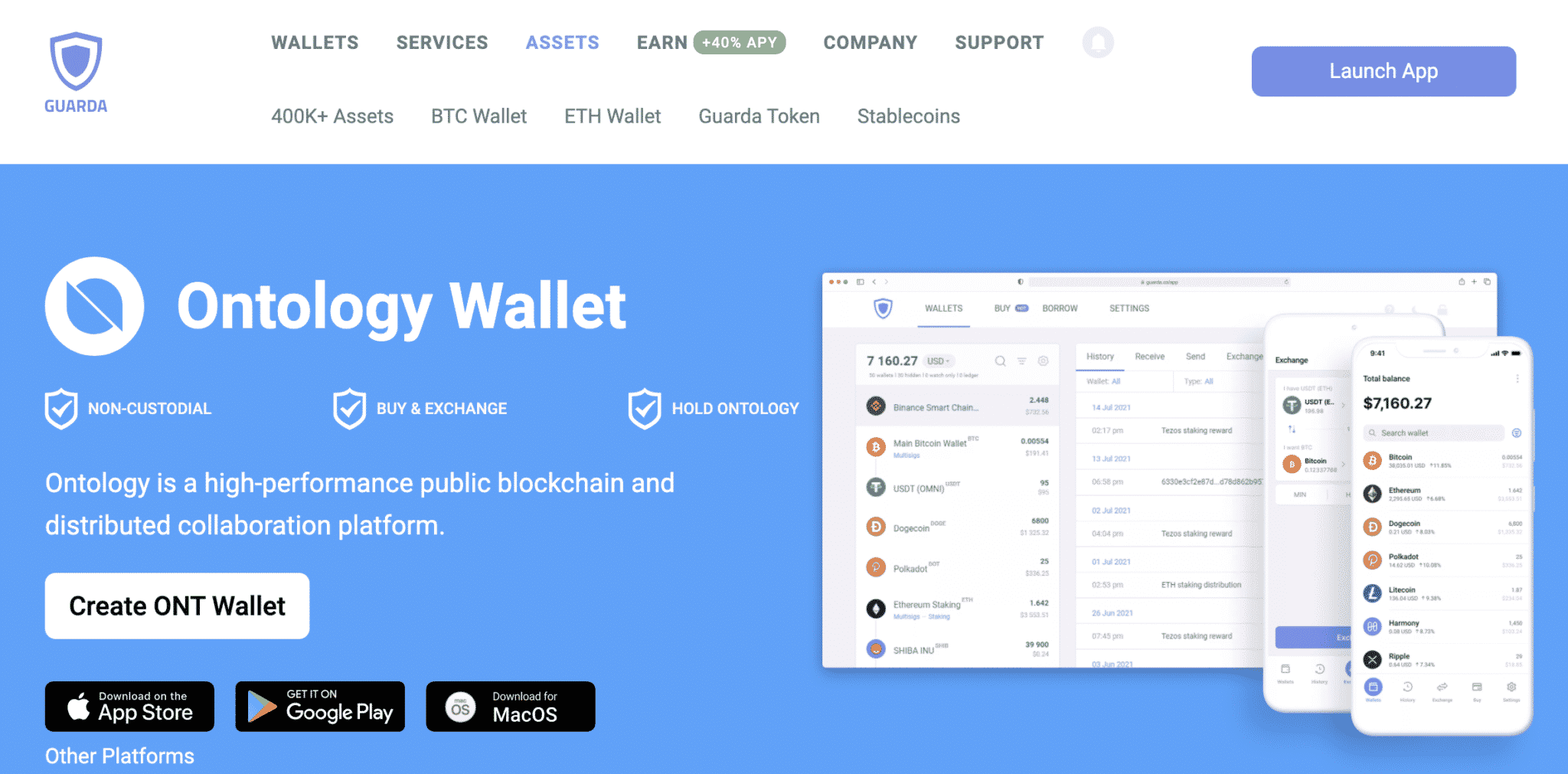Ontology is a public platform that aims to remove barriers between the blockchain and the business sector.
Businesses can use Ontology without previous knowledge of distributed networks ar use blockchain technology. When Chinese company Onchain launched Ontology in 2017, there were virtually no ways for businesses to integrate blockchain into their infrastructure without extensive knowledge of blockchain.
As well, current trust networks face a variety of issues. Poor privacy protection, untapped data value, data management monopolization, and ineffective identity authentication are all opportunities for blockchain. Ontology seems to resolve these issues with its solid trust ecosystem.
Through the tools Ontology created, corporations can implement trust mechanisms and tailor them to their business needs. Essentially, its blockchain protocol opens the door for the global adoption of blockchain technology in corporations. It eliminates the learning curve and offers mass customization.
In Ontology’s words:
“Ontology is a blockchain/distributed ledger network which combines a distributed identity system, distributed data exchange, distributed data collaboration, distributed procedure protocols, distributed communities, distributed attestation, and various industry-specific modules. Together this builds the infrastructure for a peer-to-peer trust network which is cross-chain, cross-system, cross-industry, cross-application, and cross-device.”
Ontology and NEO are perfect partners in a hungry race to digitize our world. Take a look at the video above for a pretty good overview of the project.
About the NEO/ Ontology Relationship
Last November, a crowd of blockchain enthusiasts and investors assembled in New York City. They came to hear Onchain, a company dedicated to developing blockchain systems, announce the launch of the groundbreaking platform, Ontology.
“Not only did we bring the best industry minds together, but the Ontology launch brought our project to the world stage” CEO of Onchain and NEO co-founder Da Hongfei said at the event. “Ontology and NEO will build a broad ecosystem using blockchain and other new technologies to serve the real economy. ”
The official website of Ontology lists Jun Li as the Founder of Ontology, and his LinkedIn lists him as the co-founder/ chief architect of Onchain.
However, the crypto community has often confused the roles of projects among each other. It should be clarified that NEO does not own Onchain nor Onchain own NEO. In a Youtube interview, Da Hongfei clears up the confusion with the companies roles.
“First, I need to clarify that NEO and Onchain are separate entities, so Onchain doesn’t own NEO, or NEO, Onchain. They are separately funded – NEO is funded by the community, and Onchain is funded by a very famous financial group in China, Fosun. They bought a lot of insurance companies and banks in Europe. So they are separate. Second, Onchain benefits from the NEO ecosystem. The product, called DNA, is very similar to NEO, but it is written in the Go language. OnChain is helping other blockchains and financial institutions to build their blockchains with DNA. It’s basically very similar to NEO, and in the future, with NEOx (the cross-chain protocol) everything can be linked together.” – Hongfei
Ontology Trust Network
- Chain 1: Verification of people, wealth, things, and organizations.
- Chain 2: Verify applications and link them together
- Chain 3: Verify and link modules, protocols, SDK’s and API’s
- Chain 4: All the different networks chains. This layer functions to link all the chains together.
As stated in the whitepaper, “in order to meet the needs of different industries, the flexible design structure is modularized, pluggable, and easily expandable.”
What this means is that Ontology is attempting to be universally adaptable for a wide range of functions. They hope to be the go-to source for verifying the accuracy and authenticity of things like identity or ownership. Companies like Facebook will be able to easily plug into Ontology for trust.
ONT Token Structure
ONT was airdropped to NEO holders in March 2018. From this airdrop, 20 million ONT were distributed to the community by the NEO Council.
There will be a max supply of 1 billion ONT tokens which are indivisible, and you’ll get Ontology GAS (ONG) from holding ONT (similar to how NEO GAS functions). Ontology had previously awarded 1,000 ONT tokens to everyone who signed up to their newsletter (which is now closed).
More breakdown of the token distribution:
- 12% will go to the Ontology community
- 28% for institutional partners
- 10% to the NEO Council
- 25% to the development of the Ontology ecosystem
- 10% to Ontology technical community rewards
- 15% to Ontology core team.
Where Can You Buy and Store Ontology?
ONT never had a public ICO sale, and was released exclusively as an airdrop to NEO holders that held NEO by March 2018.
Today, ONT is available on most popular exchanges, and storing it is pretty simple. For example, Guarda Wallet makes it possible for users to simply “create an Ontology Wallet” that seamlessly integrates into their other holdings.

Ontology Wallet on Guarda
Hardware wallets Ledger Nano S and Trezor also offer ONT capabilities.
Final Thoughts: Following Ontology’s Journey
According to its whitepaper, “sociologists put the number of people we trust at less than one hundred”, showing that for most people, it takes time and effort to trust someone and get to know them. Ontology is looking to replace the current lengthy ways we gain trust and bring us forward with blockchain automation of trust.
Ontology will also work together with NEO to bridge the gap between blockchain technology and the real world. While NEO and Ontology have similar goals, NEO focuses on digital assets and a global Smart Economy whereas Ontology focuses on trust, identity, and data exchange, and authorization. Think of NEO and Ontology like peanut butter and jelly. They are mutually beneficial and put together, they make a tasty sandwich.
Finally, the team behind Ontology comprises of reputable cryptocurrency industry leaders with an already established history of success. And unlike many other blockchain projects, the Ontology team isn’t just targeting the financial industry. They’re focusing on insurance, government, medicine, IoT, and other industries during its growth, making it a wide-scale project with plenty of potentials.
With a relatively long-term presence in the blockchain industry and with a clear vision for the project, it wouldn’t come as a surprise to see Ontology work hand-in-hand with NEO to revolutionize the way many businesses run.
The post What is Ontology (ONT)? | Beginner’s Guide appeared first on CoinCentral.





















